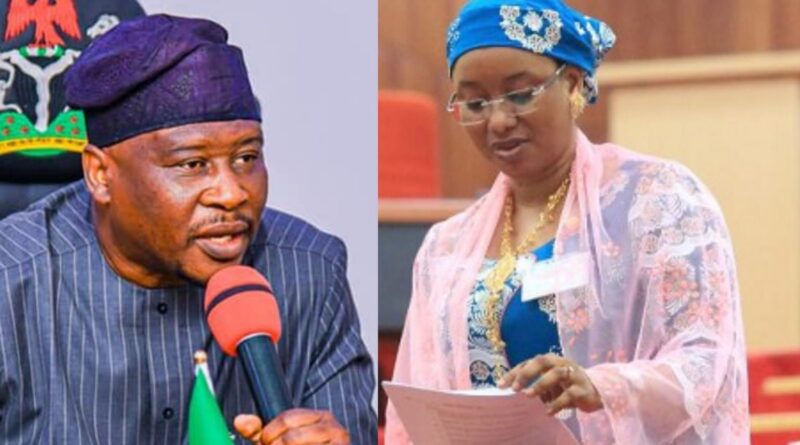Adamawa 2023: The End of Desperation for Wujja Politicians
By Humwashi Wonosoiku.
Every election year, Nigerian politics is filled with drama—theatre of the bizarre. This does not imply that we are maturing in democracy; rather, it reflects the force of our variety.
After more than two decades of democratic processes, one would have expected the 2023 elections to be unique. While it may be a pleasant respite for some, the turbulence of power grabs, attempted bribery, and questionable deals highlights Nigeria’s democracy’s increasingly fragile state.
Unfortunately, when Africa’s greatest electoral population votes, it almost invariably results in widespread melodrama. It’s remarkable that while the world was watching what the largest black country has to offer, the obvious occurred… A group of politicians reduced the seriousness of the polls to nothing more than a melodrama, displaying complete sophomoric attitude that showed no lack of genuine patriotism, respect, or ethics.
The serenity that defined the wonderful Adamawa state withstood the provocation of certain despondent politicians following the courageous involvement of voters who faced challenges during and after Nigeria’s 2023 elections. The scenario once again reveals our politicians’ antics.
The complex politics of power and dissidence in our state also revealed a growing schism between the people’s mandates and self-centered leaders. Democracy is about the people’s decisions and peaceful change.
If a vote becomes purely a power play, allowing unqualified people to do whatever they want with their unfettered desire for power, regardless of concern for the general welfare, democracy is reduced to a mediaeval power game.
The horrible occurrences in Adamawa State’s most recent elections best demonstrated this proclivity to subvert the people’s voice at any time.
All proponents of political morality were relieved to learn that the Apex Court’s verdict on Wednesday, January 31, 2024, that the attempted rape of democracy did not make it from the electoral process to the Tribunal and Court of Appeal.
However, its spirit was violated numerous times. The electorate’s decision and the election umpire’s proclamation were ignored with impunity. Although the Electoral Act requires the returning officer to reserve the power to notify and declare a winner, the opposition devised a strategy with an incompetent electoral commissioner still on the run to announce the opposite.
Misusing his position and fully aware that he had erred in announcing the loser even as the vote count was underway, he pushed that the court pronounce their preferred candidate the winner. All mature democracies have developed an accepted political culture over time, and it is unfathomable and immoral to violate people’s verdicts or manipulate them for personal advantage.
In a growing democracy, it is impossible to preserve principle-based politics without the help of legislative requirements and strong institutions. Fortunately, the constitutional coup, which was well planned, failed again. As a result, lawmakers must clean up our legal system so that desperate politicians do not get away with violating the Constitution.
It is evident that considerable revisions are required if Nigeria’s electoral process is to retain even the semblance of legitimacy. A democracy can only exist if the rule of law is upheld.
If the process of power itself is vitiated and no standards of conduct are followed, the process will soon be deemed illegitimate, and governance will be reduced to constitutional brigandage.
All parties involved have a vested interest in changing the regulations in order to ensure the survival and legitimacy of the democratic process and put an end to the plague of illegal activity. Nigeria’s democracy must progress forward. We must not succumb to the wishes of electoral gangsters.
Governor Ahmadu Umaru Fintiri has accomplished massive infrastructural development in road projects, education, health, security, and human capital development, among other things, across the state. He is passionate about the well-being of the state’s people and is also determined to sustain the administration’s developmental strides until May 2027, when his tenure ends.
Governor Fintiri was never sidetracked, even in the face of adversity, and has remained focused and motivated to rescue democracy while simultaneously lifting Adamawa out of the doldrums of underdevelopment. The main takeaway from all of this is that divinity grants power.




